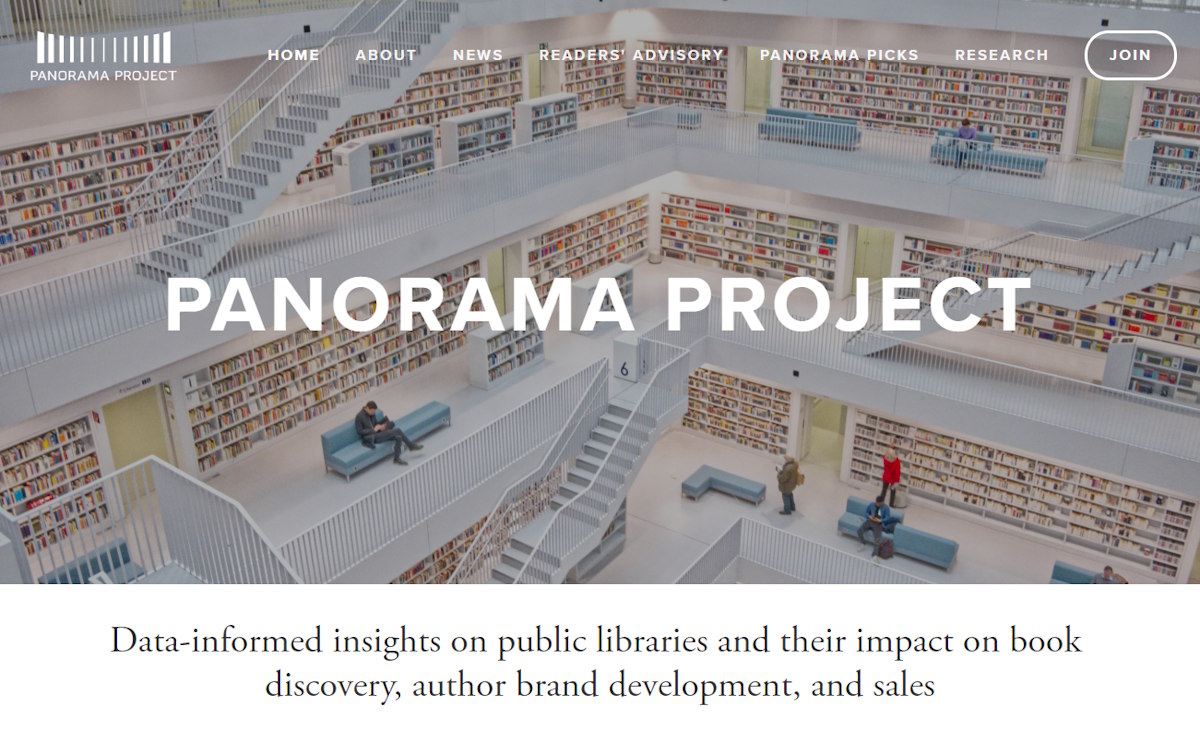I took over the Panorama Project last July—which really does feel like two lifetimes ago—so as my anniversary looms, it’s a perfect time to check-in and see how things are progressing.
It was only three months ago that the Panorama Project was gaining some real momentum, coming off a productive PubWest gathering and announcements of two major initiatives for 2020: Immersive Media & Reading 2020—Consumer Survey, and the Library Marketing Valuation Toolkit.
The last time I posted an update, the impact of the COVID-19 pandemic in the U.S. was unclear as “social distancing” was still a new term, and three months later it’s arguably been even worse than I imagined, on pretty much every front.
I’m curious to see what happens to book sales over the next couple of months as marketing for most new releases will get drowned out by a relentless news cycle that makes the past couple of years seem quaint by comparison. I’m particularly curious about what role public libraries will play as people stay closer to home and are more mindful of their discretionary spending. Will print and/or digital circulation spike? Will backlist in certain categories see a surge in demand, the way 1984‘s did in the wake of the Snowden NSA leaks back in 2013, and again after Trump’s inauguration in 2017?
Musings about book sales seem quaint in light of everything that’s transpired since, especially as the pandemic has exposed several industry fault lines, and the aftershocks have yet to settle down. That’s a whole post of its own, for another day, though.
Despite everything, Panorama’s work hasn’t halted, and our two big initiatives continue to move forward.
IMMERSIVE MEDIA & READING 2020—CONSUMER SURVEY
I’ve been genuinely excited about this initiative since it was first given the green light, and one of my top priorities was establishing a truly cross-industry collaboration to pull it off. Not only does the Consumer Research Committee include representatives from the American Library Association (ALA), Authors Guild, Book Industry Study Group (BISG), Independent Book Publishers Association (IBPA), and PubWest, but it’s being chaired by Dr. Rachel Noorda, Director of Publishing at Portland State University, who with her colleague, Dr. Kathi Inman Berens, Assistant Professor of English and Book Publishing, PSU, will be guiding the development of both the methodology and survey itself.
The lack of transparent data in the book publishing industry is a topic I’ve raged about often over the years, so being able to spearhead this project is an honor and a privilege. The pandemic has unsurprisingly slowed the process down as each of the participating organization’s representatives have had their own battles to fight on behalf of their respective members, but they’ve remained committed and engaged anyway. Working with Qualtrics, I’m extremely confident that our methodology and data collection will stand up to scrutiny, and the results of the survey itself will be useful and actionable for all industry stakeholders.
We’re still deciding on a revised timeline for deployment as we want to be able to gauge the impact of COVID-19 without making it the primary focus, but our goal remains to have an initial report and analysis published before the end of the year.
LIBRARY MARKETING VALUATION TOOLKIT
Springing out of Panorama’s research on readers’ advisory activities and author events at libraries, this initiative is right in my wheelhouse. I wrote something about it for Publishers Weekly last week, ahead of my ALA Virtual Spotlight Session on Thursday, June 25th.
It remains to be seen whether virtual events will become a valuable, permanent marketing channel moving forward, but awareness of the importance of author events has arguably never been higher. And a Library Events & Book Sales Survey conducted by the Panorama Project suggests that libraries in fact play a huge role in marketing books and authors through events.
Among the survey’s key findings: library events tend to feature authors and books of all kinds, not just current bestsellers—including traditional and self-published works; genre fiction, nonfiction, poetry, as well as national bestsellers. And respondents to the survey overwhelmingly said they often book local authors for their events over touring authors (72% vs. 28%), and nearly all said they most often worked directly with authors when booking them for events, with less than half saying they worked to coordinate events with publishers and local booksellers.
For publishers, public libraries are effectively hyper-targeted local media platforms with unparalleled brand affinity, focus, and reach, and they provide a variety of free marketing services for books, ebooks, and audiobooks they spend literal hundreds of millions of dollars to purchase every year—all non-returnable. Putting a monetary value on the entirety of a library’s platform arguably shouldn’t be necessary for publishers to recognize them as invaluable partners, but until “I Love Libraries” is more than a reflexive marketing slogan, it’s a worthwhile effort.
For more information on the Panorama Project, check out panoramaproject.org, and follow us on Twitter and LinkedIn.
Do you like email?
Sign up here to get my bi-weekly "newsletter" and/or receive every new blog post delivered right to your inbox. (Burner emails are fine. I get it!)

